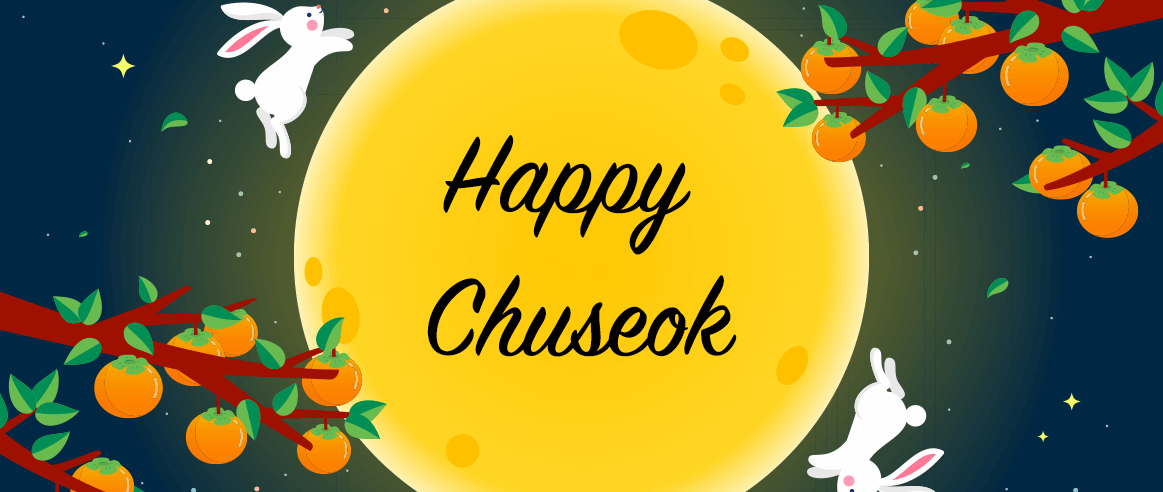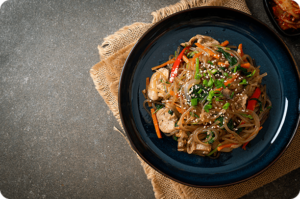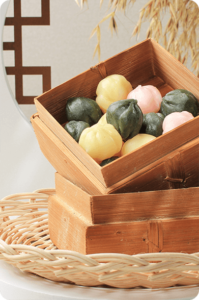Written by Jaden Parker
Every 15th day of the 8th lunar month during a full moon, the Harvest Moon Festival takes place in Seoul, Korea. Most dates claim that this will fall on the 10th of September, but the next full moon is the 29th. The Harvest Moon Festival goes by many names: Autumn Eve, Korean Thanksgiving, Hangawi, and most famously Chuseok. In 2017, over 2 million people were in Seoul’s airport during the holiday! So, what is Chuseok?
A possible history of the festival dates back to the Silla dynasty when two princesses had a weaving competition. The goal was the weave the most cloth, and the competition lasted a month, ending on the 15th day of the 8th lunar month. The losing team had to prepare a feast for the winners. Tons of events were held during that first festival that still happen today. People participate in wrestling matches called Ssireum, archery, and tug-of-war.
There are three major traditions followed over this three-day holiday, all involving food. The first event is called Charye, and it is a memorial service honoring ancestors. In ancient customs, women would prepare a feast of produce and rice. Today, you will still see traditional meals like japchae (glass noodles with vegetables and meat), namul (seasoned vegetables), galbijjim (soy-braised beef short ribs), toran guk (taro soup), and shikhae (punch from rice malt).
The festivities don’t stop there. Following Charye, people visit the graves of their loved ones and clean off the headstones in a tradition called Seongmyo. There is also a traditional dance that takes place (Ganggangsullae) where women dress in silk clothing called Hanbok. This tradition might be related to the Joseon Dynasty when soldiers made women of the village dress up in military uniforms to give the impression they had more troops.
And as if your mouth isn’t already watering from the meals of Charye, there are a multitude of other traditional foods one can partake in during this festival. The most popular dish is a rice cake with sesame seeds and beans. These are songpyeons, and it is said that making a beautifully-shaped one means meeting a good spouse or birthing a beautiful baby. Hangwa is another dessert, a cake-like cookie, made from rice flour, honey, fruit, and roots. They also have many variations of Korean pancakes (jeon) to go around; made of fish, meat, eggs, and vegetables fried in a batter of flour and eggs, popular kinds are saewoo jeon (shrimp) and saengsun jeon (cod). Finally, you can wash it all down with some lovely rice liquor, sindoju!
So, whether you’ll be in Seoul for the festival or hanging out with family and friends at home, you can try your hand at these authentic Korean dishes and bring a little Chuseok to you!
Happy Harvest Moon Festival!











